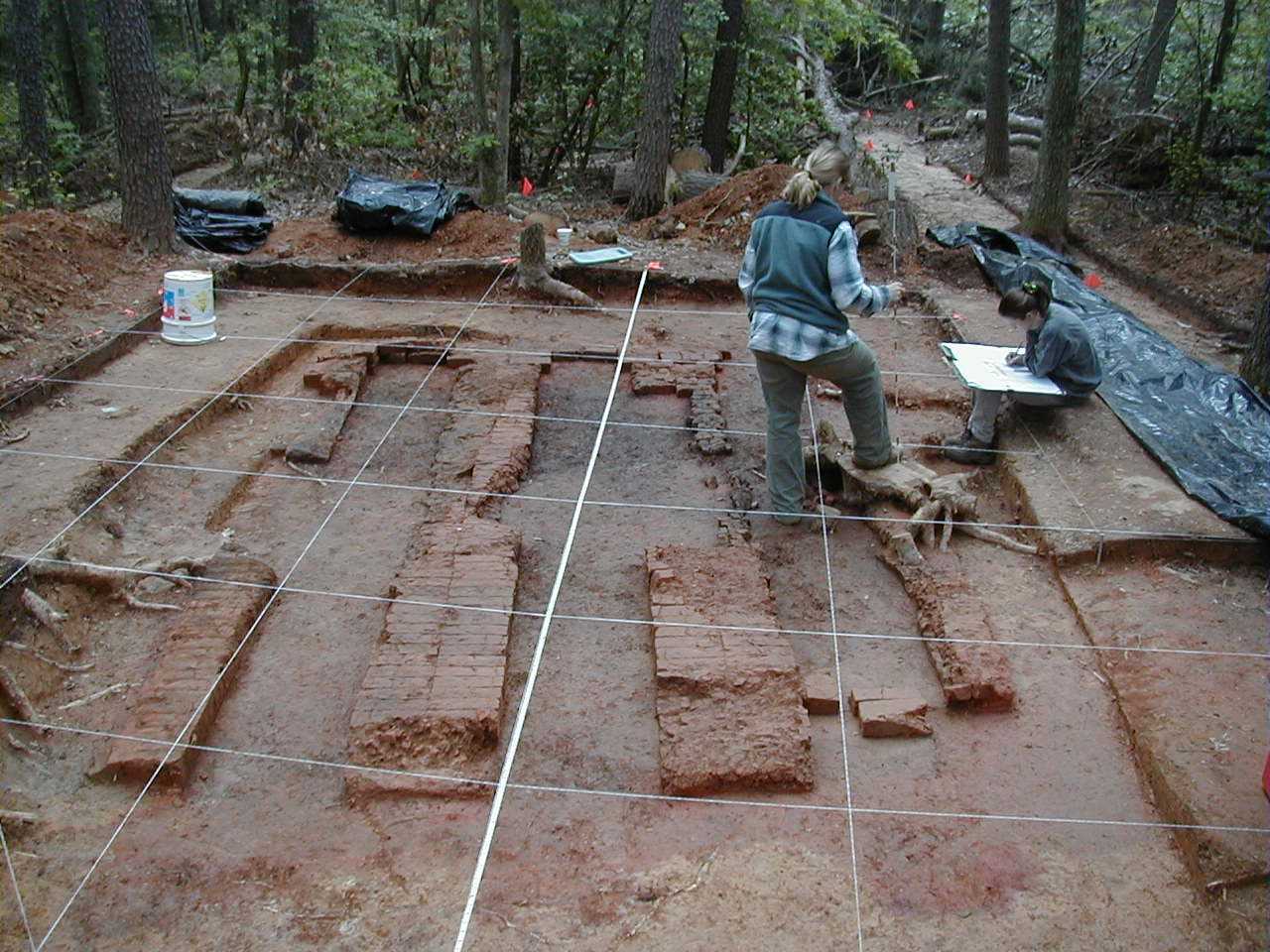 Archaeological recordation of Brick Clamp, MD 5 Hughesville, Charles Co.
Archaeological recordation of Brick Clamp, MD 5 Hughesville, Charles Co.
Federal and state agencies—or the recipients of their assistance—need to consult with MHT as part
of the Section 106 process. Projects requiring review include actions with direct federal or state funding
sources, permits, licenses, or other actions with state or federal involvement. Ultimately, the responsible
agency must complete the requirements of Section 106 prior to making a final decision to fund or approve a
project.
The following is an overview of the four steps in the Section 106 process. For more detailed information,
guidance, and training, please see the Advisory Council on Historic Preservation's
Protecting Historic Properties.
Step 1: Initiate Consultation
An agency must determine, with MHT, if a proposed action is an undertaking with the potential to affect
historic properties and, if so, plan to involve the public and identify consulting parties. Participants
in the Section 106 process may include the involved agency, State Historic Preservation Officer, local
governments, Indian tribes,
applicants for federal assistance, interested parties, and the public. The agency must invite parties
to participate in consultation and provide basic information about the undertaking to all parties. In
some cases, the federal Advisory Council on Historic Preservation will also participate in consultation.
Additional consulting parties may include organizations and individuals with a demonstrated interest in
the project. The parties’ interest may entail legal or economic relation to the project or affected
historic properties (such as the owner of an affected resource) or relate to their concern for the
undertaking's effects on historic properties (such as a local historical society, Certified Heritage
Area, state recognized Indian tribe, or preservation advocacy organization). The views and interests
of the public are important to inform agency project planning decisions. The involved federal/state
agency must seek and consider the views of the public in a manner that reflects the nature and
complexity of the undertaking and its effects on historic properties by providing the public with
information about the project and allowing for public comment.
Step 2: Identify Historic Properties
Agencies must identify areas where the project could directly, indirectly, or cumulatively affect historic
properties, known as the Area of Potential Effect (APE for short). The agency must gather information on
cultural resources within the APE and determine which properties are listed in or eligible for listing
in the National Register of Historic Places.
» Identifying Historic Properties
Step 3: Assess Effects on Historic Properties
The agency must determine the effects the project may have on any historic properties identified in the
APE by applying the criteria of Adverse Effects, in consultation with MHT.
Step 4: Resolve Adverse Effects
When a proposed project will have an adverse effect on historic properties, the agency must explore
alternatives to avoid, minimize, or mitigate those effects. MHT seeks to prevent adverse effects on
historic and archaeological properties through consultation. Sometimes adverse effects are unavoidable
given project needs, environmental or design constraints, emergency situations, or other requirements.
In these instances, agencies consult with MHT and consulting parties to negotiate a Memorandum of
Agreement that specifies meaningful mitigation measures that will be implemented to resolve the
adverse effect.
Ultimately the historic preservation review process does not proscribe an outcome. It is a consultative
and deliberative process. Agencies, through consultation with MHT and relevant parties, must balance
multiple and often conflicting concerns to make sound project planning decisions. MHT review helps
ensure compliance with preservation laws and promotes the appropriate stewardship of Maryland's
heritage resources.
Agencies should be aware that certain local jurisdictions administer their own historic preservation
review process. Local reviews are handled independently from the Section 106 process and may generate
helpful information that informs Section 106 consultation. MHT encourages state and federal agencies
to coordinate the local review process in advance of Section 106 consultation, where applicable.
Contact the appropriate local jurisdiction for information on pertinent requirements.